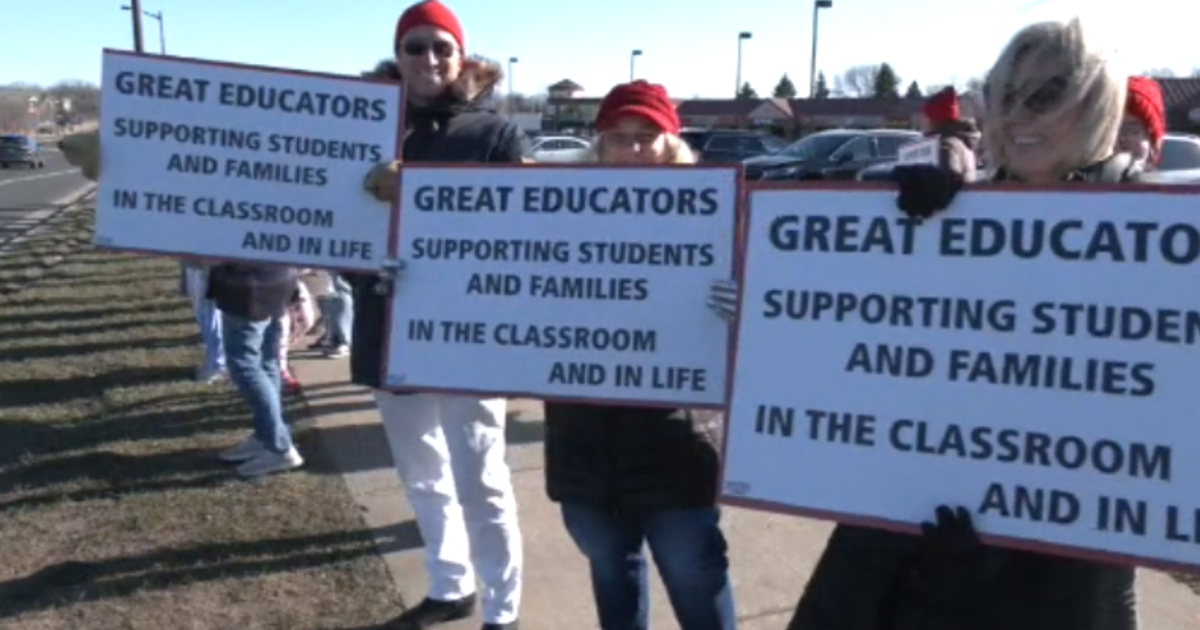Wisconsin Republicans To Vote On Election Law Changes, As Gov. Evers Readies Veto Pen
MADISON, Wis. (AP) — The Republican-controlled Wisconsin Legislature was scheduled to vote Tuesday on bills making it more difficult to vote absentee, proposals that are all-but certain to be vetoed by Democratic Gov. Tony Evers but that GOP lawmakers say are needed to address issues that arose during last year's presidential election.
The measures are part of a national push among Republicans to change voting laws following former President Donald Trump's defeat in November and his unproven claims of widespread fraud and abuse. Trump lost to Democrat Joe Biden by about 20,600 votes in Wisconsin, an outcome that withstood a partial recount and numerous state and federal lawsuits.
Other Republican-controlled states, including Georgia, Iowa, Texas, Florida and Arizona, have passed laws largely targeting mail-in voting. Republicans in other states have defended the moves as bolstering security and trust in elections, while critics have said the true intent is to raise hurdles to absentee voting to tamp down turnout.
Wisconsin Republican lawmakers have introduced more than a dozen bills making changes to state election law. Evers has signaled that he will veto any that pass the Legislature, meaning they won't go into effect.
One bill up in the Senate on Tuesday would prohibit local election officials from filling out missing voter information on the absentee ballot certificate, which also serves as the envelope, that voters use to return ballots.
Trump sought to disqualify about 5,500 absentee ballots in Dane and Milwaukee counties where election clerks filled in missing address information on the certification envelope.
Clerks had been filling in missing information on the certification envelopes for a dozen elections prior to the 2020 presidential election, based in part on guidance from the Wisconsin Elections Commission. After Trump lost, Republicans questioned the legality of the practice since state law doesn't specifically allow it.
Under the bill, any absentee ballot missing information would be returned to the voter to fix. Officials who fill in the missing information would be guilty of election fraud, which is punishable by up to a $10,000 fine and three years in prison.
Another bill up for Senate approval would disallow ballot-collection events like one held last year in Madison before the window for in-person absentee voting begins two weeks before an election. The measure would also limit who can work at such events to employees of the local clerk's office. The Madison event, dubbed Democracy in the Park, was staffed by many volunteers and took place before the in-person absentee voting period.
Trump had argued in a lawsuit that no ballots should be counted that were collected at the Democracy in the Park events, or where election officials added missing information. On both of those claims, the Wisconsin Supreme Court said Trump was raising the issues too late, while also saying the claims lacked evidence to back them up.
Three dissenting conservative justices said the laws need to be clarified, leading to the bills up for a Senate vote.
In a third bill, which previously passed the Senate and would head to Evers if passed by the Assembly, counties and municipalities would be generally prohibited from accepting grants or donations from private entities to help run elections.
The bill comes after the nonprofit Center for Tech and Civic Life awarded more than $6 million to five Wisconsin cities to help with the November election. The nonprofit's $250 million in grants awarded nationwide were funded by Facebook founder Mark Zuckerberg and his wife. Conservatives sued to stop the funding in Wisconsin, but lost in federal court.
Republicans have raised particular concerns with how the money was used in Green Bay. A state audit on the election, including what happened in Green Bay, has been ordered by state lawmakers but is expected to take months to complete. The Wisconsin Assembly also ordered an investigation.
A number of other bills have been introduced, but not yet advanced out of committee for votes in either the Senate or Assembly. One of those proposals would restrict who can qualify as indefinitely confined, a status that allows for a voter to cast a ballot absentee without having to show photo identification.
Other pending bills would limit the number and location of ballot drop boxes; require absentee voters to provide an ID for every election; create more paperwork for those who vote early in clerk's offices and require nursing homes to notify family members of residents when special voting deputies, who assist with completing absentee ballots, will be present.
(© Copyright 2021 The Associated Press. All Rights Reserved. This material may not be published, broadcast, rewritten or redistributed.)



